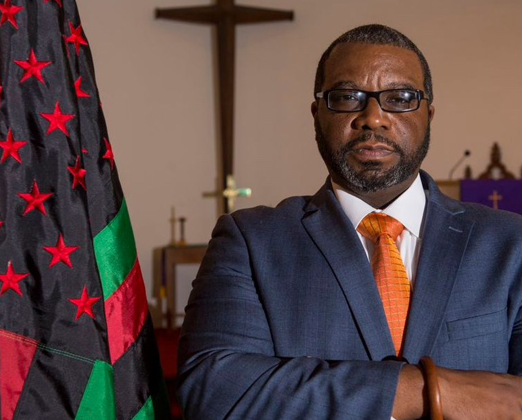Community Spotlights are question-and-answer features that highlight Dodge Foundation grantees, partners, funders, giving circles, staff and trustees, all of whom are working to transform New Jersey into a model of racial justice and equity where everyone can thrive. For this Community Spotlight, we spoke to the Rev. Dr. Charles F. Boyer, founding director of Trenton-based organization Salvation and Social Justice.
Tell us a bit about your organization.
We are an advocacy organization that seeks to change public policy to be more humane and liberating for Black people by utilizing strategies derived from the emergence of the Black faith community in the United States. These people created their own community-led and -imagined spaces and alternatives to an abusive society. They did so by never losing hope, fierce unapologetic advocacy, and radical reconciliation and love.
What’s your vision for a just and equitable New Jersey?
We work towards a New Jersey that will one day invest more into Black people’s health, humanity, and well-being than into punitive measures like police and prisons. We envision a New Jersey where poverty is significantly reduced because those in power admit and repair the centuries old harm done to Black people.
What is the mission and vision of your organization? What is the change you’re hoping to make in New Jersey and more generally?
Our mission is to abolish structural racism and liberate public policy theologically by modeling and building the hope and resiliency of Black faith, where historically marginalized people move from lament to liberation by advocating, envisioning and creating their own community-led solutions. Our vision is to see a truly just and equitable society especially for Black people who have consistently borne the brunt of injustice.
Our vision is to see a truly just and equitable society especially for Black people who have consistently borne the brunt of injustice.
When did you know this is what you wanted to do with your career?
When I entered seminary, Payne Theological Seminary gave me an understanding and appreciation of the Black church and its impact in ways I had not previously realized. The theology taught at this historically Black seminary emboldened me from the deepest levels of my faith to do this work.
What’s an example of your work having the impact you envisioned? What’s a success story for you?
The work I’m most proud of is the advocacy that led to over 8,000 people being released from prison during the pandemic. New Jersey had the deadliest prisons in the nation. Our advocacy led to lives being saved and a 40 percent reduction in the state’s prison population. This movement was led by family members of the incarcerated and faith leaders and was launched by a Black-faithed themed funeral. This like no other success displayed the power of our mission and theory of change.
What’s next for you and your organization? What is your big rock for the next 12 months?
As we have moved into Trenton, it has become a major goal for us to make a difference for the residents in the city. Our 12-month goal is to implement direct impact in restorative justice, violence interruption, reentry, and Black maternal health. As we look to make these connections with the most impacted residents, we hope to build Trenton based advocates for social change.
